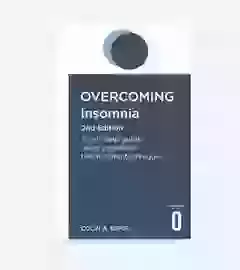Using CBT to Tackle Insomnia
Professor Colin Espie, the author of Overcoming Insomnia, explains why cognitive behavioural therapy (CBT) is an effective way to tackle insomnia and other sleep problems.
Sleep is not one of life’s “nice to have’s”, although it is of course nice! Sleep is a “need to have”, just in the same way that oxygen, water and food are essentials. Sleep is vital, and we don’t feel well physically and mentally when we are sleeping poorly. If you are reading this, you may have experienced not just the misery of broken sleep but the daytime consequences of bad nights – lack of energy, low mood, irritability, difficulty concentrating, not performing at your best. Does this sound familiar?
Insomnia is a major public health problem. Billions of dollars are spent worldwide every year on prescribed medications, over-the-counter remedies, and other suggested solutions – all in the search for a decent sleep. One in ten adults, and one in five of those over 65 years of age have insomnia. Being unable to sleep is one of the most common complaints heard by primary care practitioners, yet our healthcare systems are barely scratching the surface in offering a service that will help people.
Insomnia is a serious business, and that’s why I have spent the past 40 years discovering what it is, why it matters, and the most effective ways to overcome it. The last eight years of those have been spent at the University of Oxford where I am the Professor of Sleep Medicine. We are working very hard on two things. First to develop and test treatments that work, even when insomnia has become severe and chronic; and second, to train health professionals so that they have a better understanding of how to advise their patients.
There is good news on both fronts. On the treatment side, even more effective CBT for insomnia is emerging, and we are finding that it benefits not just night-time sleep but also daytime wellbeing; mental health in particular. The result of this research is that all leading medical and clinical authorities worldwide now recommend CBT as the most effective insomnia treatment. On the training side, we have been involved in educating and supporting clinicians from 35 countries. Yes, there has been a gap in knowledge about sleep amongst doctors and health care staff, and there still is, but the gap is steadily closing.
CBT is not really a treatment in itself, but an approach to treatment. You should be able to personalise your CBT programme to get the most benefit, and as simply and as quickly as possible. That said, don’t be misled. In my experience most insomnia problems are quite stubborn, and you will need to work quite hard to overcome them … but overcome them you can, and it is worth the effort.
CBT offers you the prospect of bringing sleep back. A sleep that will stay. Cognitive and behavioural techniques help you to understand your sleep difficulties and to directly address all of those things that get in the way of sleep. The resources in Overcoming Insomnia offer a CBT programme based on the best evidence-based advice that I can give you. Please bear in mind though that a book cannot replace your medical care or healthcare, and so I always advise people to speak to clinicians they trust.
My very best wishes to you in overcoming your insomnia, and in becoming a good sleeper!




